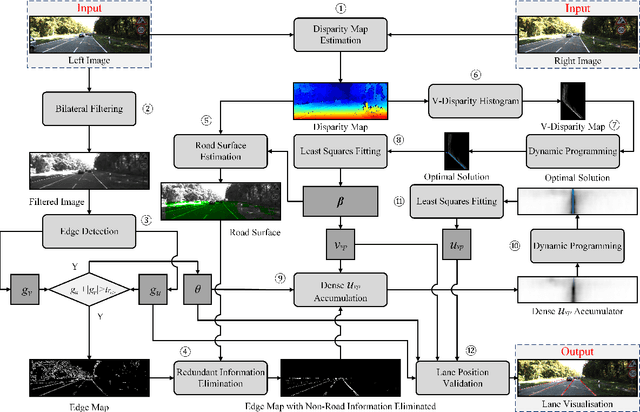Real-time stereo vision-based lane detection system
Paper and Code
Jul 08, 2018



The detection of multiple curved lane markings on a non-flat road surface is still a challenging task for automotive applications. To make an improvement, the depth information can be used to greatly enhance the robustness of the lane detection systems. The proposed system in this paper is developed from our previous work where the dense vanishing point Vp is estimated globally to assist the detection of multiple curved lane markings. However, the outliers in the optimal solution may severely affect the accuracy of the least squares fitting when estimating Vp. Therefore, in this paper we use Random Sample Consensus to update the inliers and outliers iteratively until the fraction of the number of inliers versus the total number exceeds our pre-set threshold. This significantly helps the system to overcome some suddenly changing conditions. Furthermore, we propose a novel lane position validation approach which provides a piecewise weight based on Vp and the gradient to reduce the gradient magnitude of the non-lane candidates. Then, we compute the energy of each possible solution and select all satisfying lane positions for visualisation. The proposed system is implemented on a heterogeneous system which consists of an Intel Core i7-4720HQ CPU and a NVIDIA GTX 970M GPU. A processing speed of 143 fps has been achieved, which is over 38 times faster than our previous work. Also, in order to evaluate the detection precision, we tested 2495 frames with 5361 lanes from the KITTI database (1637 lanes more than our previous experiment). It is shown that the overall successful detection rate is improved from 98.7% to 99.5%.
 Add to Chrome
Add to Chrome Add to Firefox
Add to Firefox Add to Edge
Add to Edge